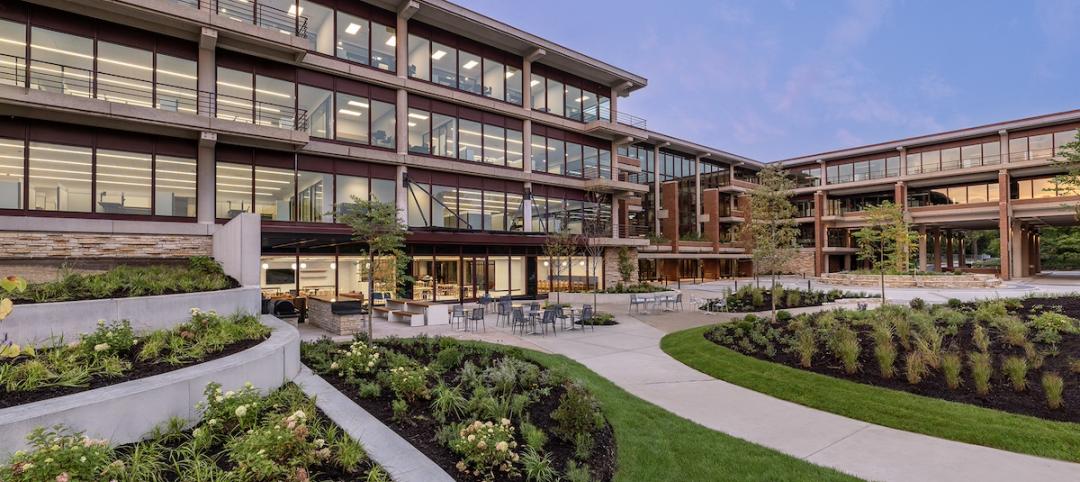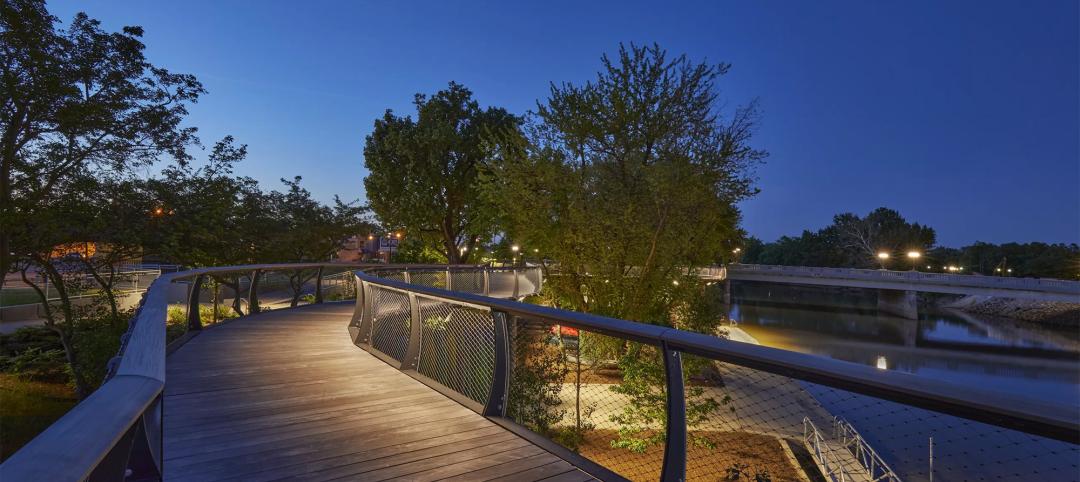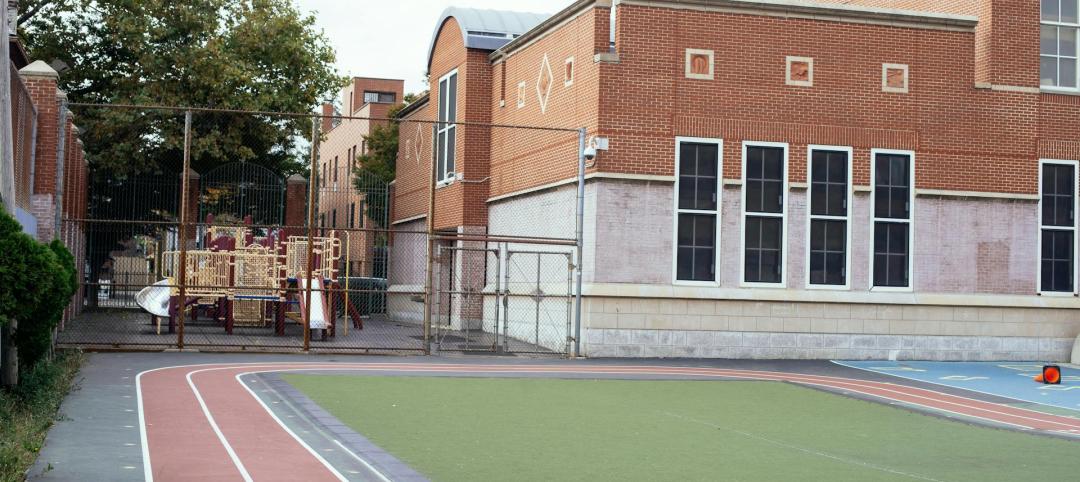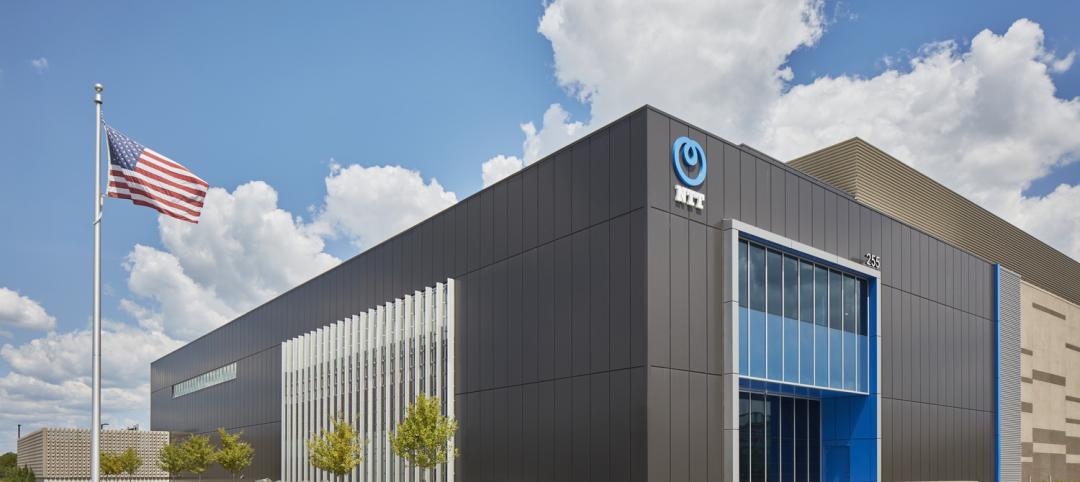Conventional windows have long been considered the weak link in the building envelope. According to the U.S. Department of Energy’s Building Technologies Program Multi-Year Program Plan 2011-2015, approximately 4.4 quadrillion Btu of energy in the U.S. is lost through windows in the form of heating and air-conditioning loads.
The DOE plan suggests that regardless of orientation or climate, window systems have the potential to outperform the best-insulated wall or roof in terms of annual energy performance, peak demand reduction, and cost.
UNIVERSITY FINDS A SOLUTION TO INEFFICIENT WINDOWS
The University of Minnesota’s Folwell Hall, a fixture on the National Register of Historic Places, recently underwent three years of extensive renovation.
Before the renovation, students, staff, and faculty who met in Folwell Hall were at the mercy of wildly fluctuating temperatures caused by outdated, inefficient windows, and an antiquated HVAC system.
The Building Team of Miller Dunwiddie Architects and construction manager McGough Construction, both of Minneapolis, set out to remedy this problem by replacing 400 existing windows with energy-efficient units. In order to meet state sustainability guidelines, window distributor National Window Associates Inc., Rogers, Minn., recommended Kolbe’s Ultra Series Sterling double-hung units with standard LoE2-270 double-pane insulating glass.
“Two of the main goals for Folwell Hall were to protect its historic significance and improve its energy efficiency,” says Denita Lemmon, AIA, project manager with Miller Dunwiddie. “The window system met both the aesthetic and performance specifications.”
In the 1980s, Folwell Hall’s century-old wood windows had been replaced with a basic aluminum system, which hid some of the historic architectural details. The replacement window system integrated aluminum-clad windows with custom aluminum panning to replicate the original architectural vision.
“To retain as much of the historical nature of the window openings, the interior trim was left in place,” says Tim Mahanna, project superintendent with McGough Construction.
The renovation of Folwell Hall was completed in August 2011. In addition to the new windows, the building’s HVAC system was updated to create an energy-efficient, temperature-controlled environment year-round. According to University of Minnesota officials, the indoor environment in Folwell Hall has been dramatically improved in terms of the HVAC, acoustics, and comfort.
COMMERCIAL RETROFIT KEEPS NOISE, ENERGY LOSS LOW
The 400 Market Street building in Philadelphia is an example of one of the countless buildings in the U.S. that are 30-60 years old where reglazing for aesthetic, environmental, or practical reasons is called for.
Constructed in 1972, the 12-story building is owned and managed by local property firm Kaiserman Co. As energy costs rose, along with tenant complaints regarding street noise, Kaiserman opted to install the Renovate by Berkowitz window retrofit system.
Glass fabricator J.E. Berkowitz manufactures an on-site window retrofit system that converts existing single-pane windows into energy-saving, triple-glazed insulating glass units. The retrofit system costs about 50% less than ripping out and replacing old windows.
Carolyn Pfeiffer, property manager of 400 Market Street, says the investment in the retrofit system is already paying dividends beyond cost and energy savings.
“Even without the energy savings, we’ve received positive feedback from our tenants, who are pleased with how much quieter and more comfortable the building is,” says Pfeiffer. The installation team worked with the tenants to minimize disruption to their workplace. “This not only made the tenants happy, but saved time and the cost of relocating them as well,” she says.
The retrofit took about 50 working days. In comparison, a traditional rip-out/replace project can take between 100-150 days for a similar 12-story structure.
AESTHETICS, THERMAL PERFORMANCE APPEAL TO MIDDLE SCHOOL
Beaty-Warren Middle School in Warren, Pa., recently completed an extensive renovation to update the 80-year-old facility. In addition to numerous structural and aesthetic updates, more than 300 high-performance, energy-efficient windows were installed.
Contractor Architectural Windows Concepts, Export, Pa., was given a six-month schedule to remove the existing windows and replace them with windows manufactured by Wausau Windows and Wall Systems.
Originally designed in 1930, the school experienced three building expansions to accommodate a growing student population. During each reconstruction phase, the windows were replaced on an as-needed basis, resulting is dissimilar styles and performance.
In 2010, the Warren County School District voted to replace the school’s windows and selected Hallgren, Restifo, Loop & Coughlin Architects, Erie, Pa., to design the reconstruction project.
“Our goal was to bring back the original intent and character of the building’s design,” says Chris Coughlin, lead architect. “We knew the windows would be an important piece to anchor the original design aesthetic and tie together the building’s many additions.”
Among the difficulties was creating profiles for more than 65 different window sizes and replicating the original shapes and colors of the window frames.
Mimicking the look of the school’s original windows, Wausau’s INvent Series units were fabricated for Beaty-Warren with a beveled face, muntin grids, and custom panning. Offset glass panes replicate the historic double-hung sash while offering easy operation, weatherability, and performance. The window’s triple-glazed, high thermal performance contributes to both the environmental and financial goals of the school. Following installation, interior temperatures at the school increased an average of 4-5 degrees Fahrenheit in the classrooms during the winter heating season. In the warmer months, the windows can be opened for natural ventilation.
To manage daylight, the windows were installed with one-inch, between-glass blinds. This allows staff to control glare, which may be evident on computer screens.
“Our office is very pleased with the design aesthetic,” says Coughlin. “The windows reflect the aesthetics that would be expected on a school from this particular era, yet add the performance we expect today.” +
Related Stories
Architects | Mar 5, 2024
Riken Yamamoto wins 2024 Pritzker Architecture Prize
The Pritzker Architecture Prize announces Riken Yamamoto, of Yokohama, Japan, as the 2024 Laureate of the Pritzker Architecture Prize, the award that is regarded internationally as architecture’s highest honor.
Office Buildings | Mar 5, 2024
Former McDonald’s headquarters transformed into modern office building for Ace Hardware
In Oak Brook, Ill., about 15 miles west of downtown Chicago, McDonald’s former corporate headquarters has been transformed into a modern office building for its new tenant, Ace Hardware. Now for the first time, Ace Hardware can bring 1,700 employees from three facilities under one roof.
Green | Mar 5, 2024
New York City’s Green Economy Action Plan aims for building decarbonization
New York City’s recently revealed Green Economy Action Plan includes the goals of the decarbonization of buildings and developing a renewable energy system. The ambitious plan includes enabling low-carbon alternatives in the transportation sector and boosting green industries, aiming to create more than 12,000 green economy apprenticeships by 2040.
Lighting | Mar 4, 2024
Illuminating your path to energy efficiency
Design Collaborative's Kelsey Rowe, PE, CLD, shares some tools, resources, and next steps to guide you through the process of lighting design.
MFPRO+ News | Mar 1, 2024
Housing affordability, speed of construction are top of mind for multifamily architecture and construction firms
The 2023 Multifamily Giants get creative to solve the affordability crisis, while helping their developer clients build faster and more economically.
Multifamily Housing | Feb 29, 2024
Manny Gonzalez, FAIA, inducted into Best in American Living Awards Hall of Fame
Manny Gonzalez, FAIA, has been inducted into the BALA Hall of Fame.
K-12 Schools | Feb 29, 2024
Average age of U.S. school buildings is just under 50 years
The average age of a main instructional school building in the United States is 49 years, according to a survey by the National Center for Education Statistics (NCES). About 38% of schools were built before 1970. Roughly half of the schools surveyed have undergone a major building renovation or addition.
MFPRO+ Research | Feb 28, 2024
New download: BD+C's 2023 Multifamily Amenities report
New research from Building Design+Construction and Multifamily Pro+ highlights the 127 top amenities that developers, property owners, architects, contractors, and builders are providing in today’s apartment, condominium, student housing, and senior living communities.
AEC Tech | Feb 28, 2024
How to harness LIDAR and BIM technology for precise building data, equipment needs
By following the Scan to Point Cloud + Point Cloud to BIM process, organizations can leverage the power of LIDAR and BIM technology at the same time. This optimizes the documentation of existing building conditions, functions, and equipment needs as a current condition and as a starting point for future physical plant expansion projects.
Data Centers | Feb 28, 2024
What’s next for data center design in 2024
Nuclear power, direct-to-chip liquid cooling, and data centers as learning destinations are among the emerging design trends in the data center sector, according to Scott Hays, Sector Leader, Sustainable Design, with HED.
















